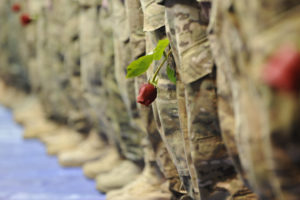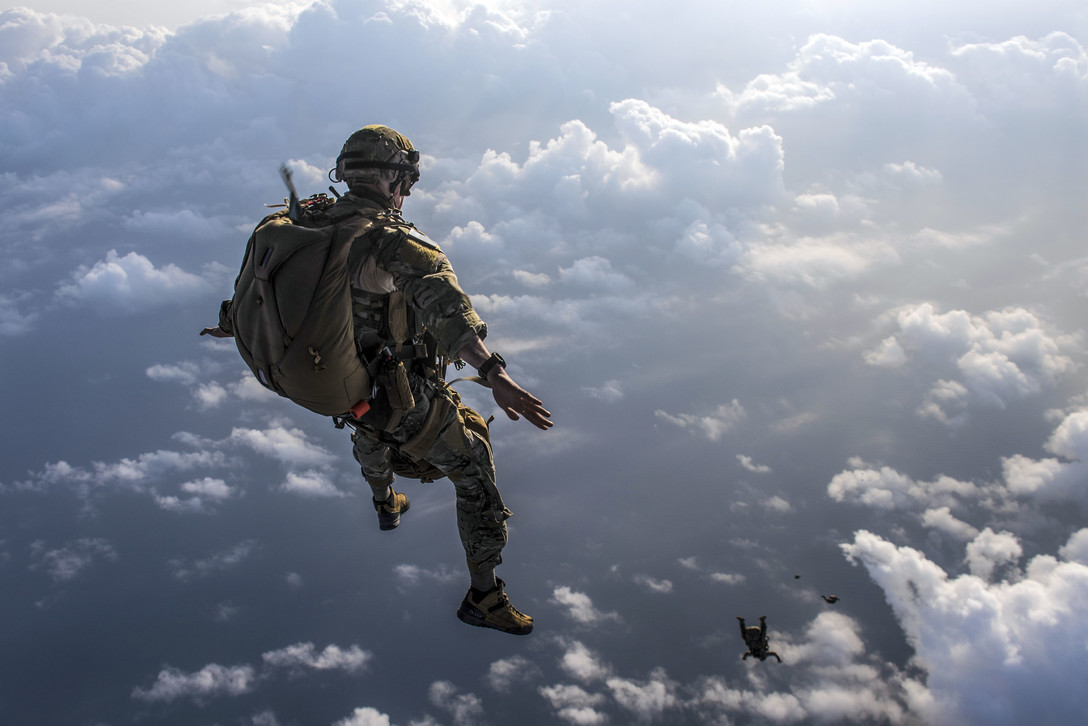
4th Brigade Combat Team (Airborne) homecoming. Photo by Percy Jones Date: 10.06.2012
“Man, you just don’t know. A part of me died in that city. I walked in there thinking I was Captain America, and walked out feeling like Doctor Doom.”
The changes that happen in people can be stark and startling. Have you ever met someone after a long absence, and something changed in their appearance…maybe they lost weight, or shaved (or grew) a beard, changed the color of their hair. You have a moment of surprise in which the change is so shocking that you’re at a loss for words for a second.
What about when that change happens, but on the inside, where you can’t see it?
One of the challenges that veterans experience after leaving the military and reengaging with people they knew before deployment or before the service is feeling like they’re not the same person. As a connection mentioned recently, “the person that walked in the door after a year being gone looks like the same person, but is really a totally different one.” The number of times that a veteran hears, “I want the old you back” is frustrating. THEY want the old them back…they wish they could undo what was done, unsee what was seen, but that can’t happen.
Once again, I want to avoid broad brush strokes. Not all veterans return from deployments as if they were John Rambo or the Deer Hunter. A majority of them do their time in the service and return to their lives. They are changed as well, and changed in good ways…more discipline, more awareness, more maturity. And all of those things are possible for those veterans who are troubled by their experiences; it’s just that the other experiences change them too.
Imagine the transformation that occurs in a veteran. What has been seen cannot be unseen, no matter how much they wish that to be true. What they know, what they learned…about themselves, about humanity…cannot be un-learned. But they appear to be the same person. If you look at them, they appear unharmed…maybe the lost a little weight, or gained a little, there’s some tanned skin or something like that…but according to all of the evidence that our eyes give us, they are the same individual.
The changes that happen on the inside take a little longer to recognize. Maybe it’s a lack of interest in what they were previously interested in. Maybe it’s noticing the veteran drifting away in the middle of a conversation, lost in thought. And often it’s the veteran themselves that notice the change; after returning from Afghanistan in 2010, for weeks I found myself looking at the posted casualty lists for the country, looking for familiar names from the unit that replaced us. Because, and I see this now, I was worried that I hadn’t told them enough, hadn’t shown them enough, and was telling myself that, in some way, their loss would be my fault.
You see, the biggest change in veterans comes from what we tell ourselves about what happened. The veteran who walked into that city, or that valley, or that province, thinking they were a hero and walked out convinced that they were a villain, might not have had an accurate picture of themselves either before OR after. How the veteran explains the events that happened in the service to themselves is directly related to how they will feel about it. We somehow take our worst moments and allow them to define who we are, and take our best moments and minimize them in such a way as to make them inconsequential. When we do bad things, we become convinced that we are “bad” or when we do monstrous things, we become convinced that we are a “monster.” We don’t, however, do the same thing when we do a heroic or special thing…that doesn’t make us heroic or special. That’s brushed aside.
If you haven’t seen the Veteran Vision Project, it’s a stark example of what I’m talking about. There is the image that the veteran has of themselves, and what is actually seen. Sometimes, these two things don’t always match. Similarly, there is an image of what the veteran’s family sees, or what the veteran’s community sees, and it also doesn’t match how the veteran sees themselves. The Veteran Vision Project is a series of photos that allow veterans to show to the world how they really see themselves compared to what the world sees. I’ve been told that what I write is impactful…be warned, these images are even more impactful. If a picture is worth a thousands words, then the amount of pain and loss that is shown in these pictures cannot be described. An article to start with is here and the main website for the project is here.
For a veteran, trying to get back to the way things were before is like trying to get the water back into the garden hose. It’s not going to happen. The normal changes that occur in life…maturity, family responsibilities, transitions from one job or city to another…make us who we are. For veterans, their experiences are totally different from those who have never served. That doesn’t make them better, or worse, but the difference is there. And just because a veteran comes back transformed doesn’t mean that they are damaged, broken, or somehow worse than the way they were before. Sure, they’re now hyperattentive to things…maybe that means they’ll be a better roofing inspector, or safety officer, or security guard…or mental health counselor.
The changes that happen, both seen and unseen, are part of the veteran’s new normal. The sooner that the veteran, their family, and the community acknowledges and accepts that fact, the sooner the veteran, their family, and the community can celebrate and benefit from these changes.
Did you enjoy this post? Please comment below and share with your network in order to join the conversation regarding veteran mental health. You can sign up for updates from Head Space and Timing and follow Duane, a combat veteran and mental health counselor, on Facebook, Twitter and LinkedIn. Keep the conversation about #veteranmentalhealth going.


